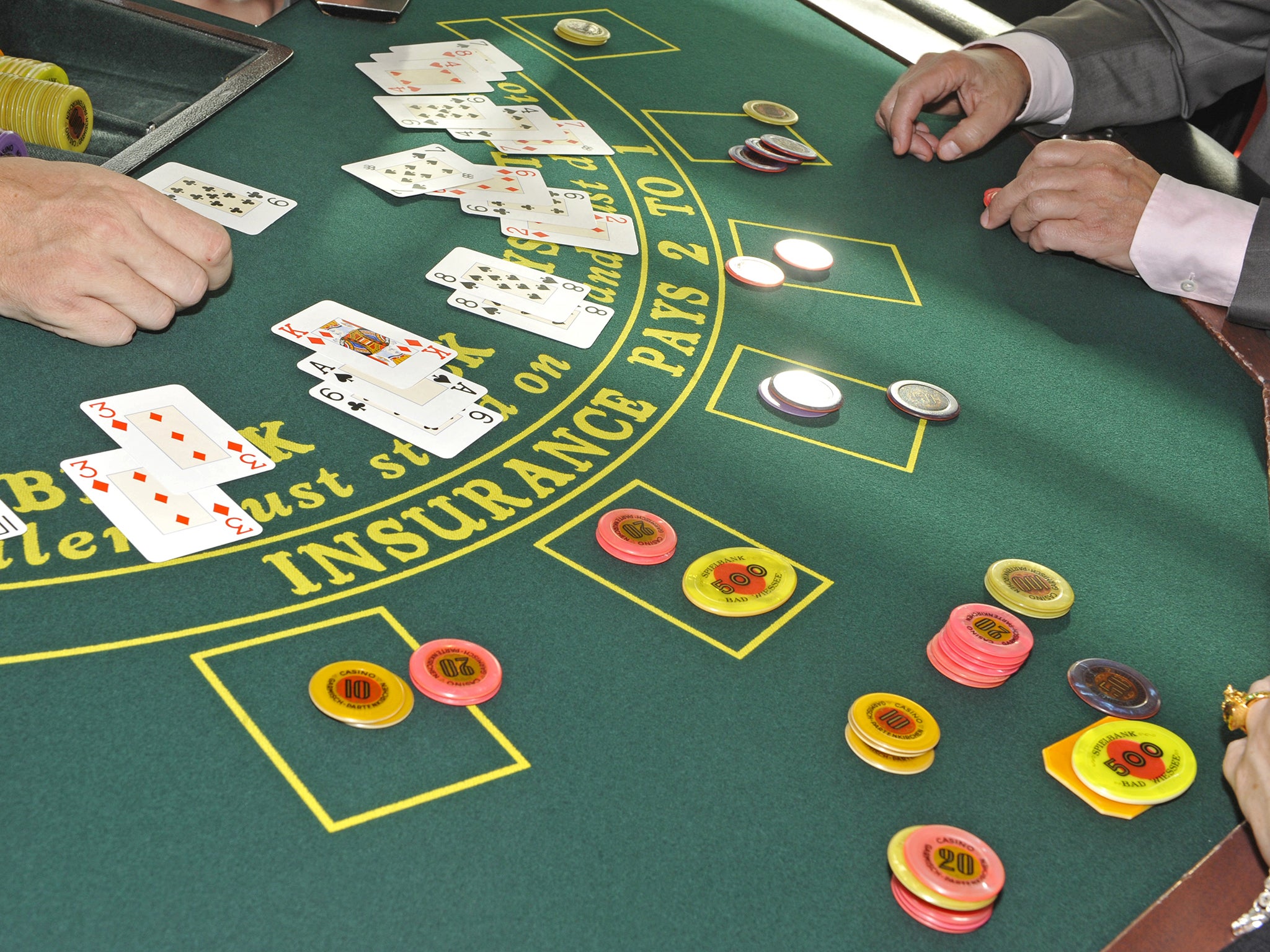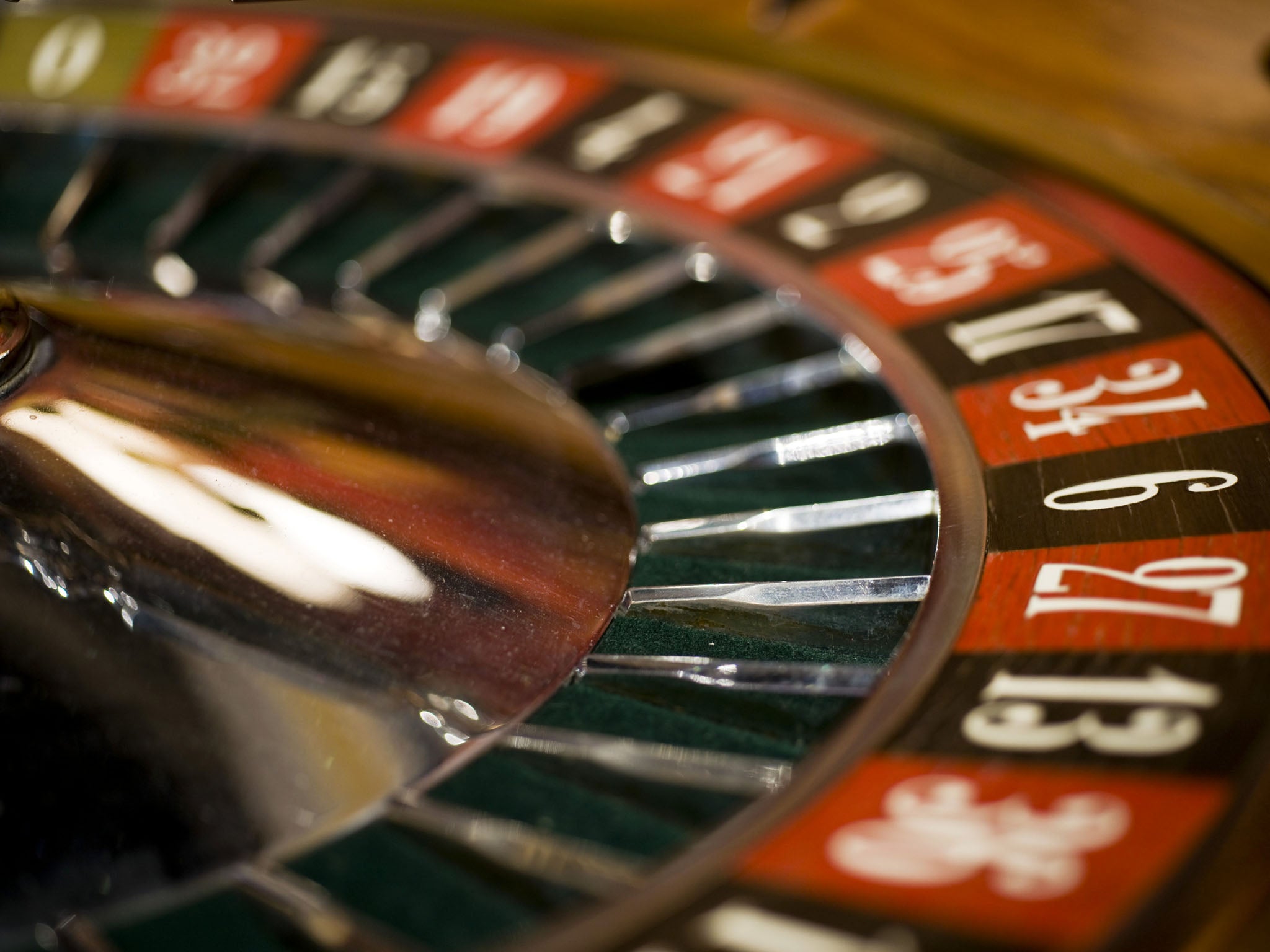The Perfect Bet: How the science of gambling influences everything around us
Punters have been trying to beat the bank since numbers were invented. And as a new book reveals, mathematicians’ early efforts have led to science underpinning everything from computing to the insurance industry

In June 2009, a British newspaper told the story of Elliott Short, a former financial trader who’d made over £20 million betting on horse races. He had a chauffeur-driven Mercedes, kept an office in the exclusive Knightsbridge district of London, and regularly ran up huge bar tabs in the city’s best clubs. According to the article, Short’s winning strategy was simple: always bet against the favourite. Because the highest-rated horse doesn’t always win, it was possible to make a fortune using this approach. Thanks to his system, Short had made huge profits on some of Britain’s best-known races, from £1.5 million at Cheltenham Festival to £3 million at Royal Ascot.
There was just one problem: the story wasn’t entirely true. The profitable bets that Short claimed to have made at Cheltenham and Ascot had never been placed. Having persuaded investors to pour hundreds of thousands of pounds into his betting system, he’d spent much of the money on holidays and nights out. Eventually, his investors started asking questions, and Short was arrested. When the case went to trial in April 2013, Short was found guilty of nine counts of fraud and was sentenced to five years in prison. It might seem surprising that so many people were taken in. But there is something seductive about the idea of a perfect betting system.
Stories of successful gambling go against the notion that casinos and bookmakers are unbeatable. They imply that there are flaws in games of chance, and that these can be exploited by anyone sharp enough to spot them. Randomness can be reasoned with, and fortune controlled by formulae. The idea is so appealing that, for as long as many games have existed, people have tried to find ways to beat them. Yet the search for the perfect bet has not only influenced gamblers. Throughout history, wagers have transformed our entire understanding of luck.
When the first roulette wheels appeared in Parisian casinos in the 18th century, it did not take long for players to conjure up new betting systems. Most of the strategies came with attractive names, and atrocious success rates. One was called “the martingale”.
The system had evolved from a tactic used in bar games and was rumoured to be fool proof. As its reputation spread, it became incredibly popular among local players. The martingale involved placing bets on black or red. The colour didn’t matter; it was the stake that was important. Rather than betting the same amount each time, a player would double up after a loss. When players eventually picked the right colour, they would therefore win back all the money lost on earlier bets plus a profit equal to their initial stake.
At first glance, the system seemed flawless. But it had one major drawback: sometimes the required bet size would increase far beyond what the gambler, or even casino, could afford. Following the martingale might earn a player a small profit initially, but in the long run solvency would always get in the way of strategy. Although the martingale might have been popular, it was a tactic that no one could afford to carry out successfully. “The martingale is as elusive as the soul,” as Alexandre Dumas put it.
On paper, the martingale seems to work fine; in practical terms, it’s hopeless
One of the reasons the strategy lured in so many players – and continues to do so – is that mathematically it appears perfect. Write down the amount you’ve bet and the amount you could win, and you’ll always come out on top. The calculations have a flaw only when they meet reality. On paper, the martingale seems to work fine; in practical terms, it’s hopeless.
When it comes to gambling, understanding the theory behind a game can make all the difference. But what if that theory hasn’t been invented yet? During the Renaissance, Gerolamo Cardano was an avid gambler. Having frittered away his inheritance, he decided to make his fortune by betting. For Cardano, this meant measuring how likely random events were.
Probability as we know it did not exist in Cardano’s era. There were no laws about chance events, no rules about how likely something was. If someone rolled two sixes while playing dice, it was simply good luck. For many games, nobody knew precisely what a “fair” wager should be. Cardano was one of the first to spot that such games could be analysed mathematically.
He realised that navigating the world of chance meant understanding where its boundaries lay. He would therefore look at the collection of all possible outcomes, and then home in on the ones that were of interest. Although two dice could land in 36 different arrangements, there was only one way to get two sixes. He also worked out how to deal with multiple random events, deriving “Cardano’s formula” to calculate the correct odds for repeated games.

Cardano’s intellect was not his only weapon in card games. He also carried a long knife, known as a poniard, and was not averse to using it. In 1525, he was playing cards in Venice and realized his opponent was cheating. “When I observed that the cards were marked, I impetuously slashed his face with my poniard,” Cardano said, “though not deeply.”
In the decades that followed, other researchers chipped away at the mysteries of probability, too. At the request of a group of Italian nobles, Galileo investigated why some combinations of dice faces appeared more often than others. Astronomer Johannes Kepler also took time off from studying planetary motion to write a short piece on the theory of dice and gambling.
The science of chance blossomed in 1654 as the result of a gambling question posed by a French writer named Antoine Gombaud. He had been puzzled by the following dice problem. Which is more likely: throwing a single six in four rolls of a single die, or throwing double sixes in 24 rolls of two dice? Gombaud believed the two events would occur equally often but could not prove it. He wrote to his mathematician friend Blaise Pascal, asking if this was indeed the case.
To tackle the dice problem, Pascal enlisted the help of Pierre de Fermat, a wealthy lawyer and fellow mathematician. Together, they built on Cardano’s earlier work on randomness, gradually pinning down the basic laws of probability. Many of the new concepts would become central to mathematical theory. Among other things, Pascal and Fermat defined the “expected value” of a game, which measured how profitable it would be on average if played repeatedly. Their research showed that Gombaud had been wrong: he was more likely to get a six in four rolls of one die than double sixes in 24 rolls of two dice. Still, thanks to Gombaud’s gambling puzzle, mathematics had gained an entirely new set of ideas. According to mathematician Richard Epstein, “Gamblers can rightly claim to be the godfathers of probability theory.”
As well as helping researchers understand how much a bet is worth in purely mathematical terms, wagers have also revealed how we value decisions in real life. During the 18th century, Daniel Bernoulli wondered why people would often prefer low-risk bets to ones that were, in theory, more profitable. If expected profit was not driving their financial choices, what was? Bernoulli solved the wager problem by thinking in terms of “expected utility” rather than expected payoff. He suggested that the same amount of money is worth more – or less – depending on how much a person already has. For example, a single coin is more valuable to a poor person than it is to a rich one. As fellow researcher Gabriel Cramer said, “The mathematicians estimate money in proportion to its quantity, and men of good sense in proportion to the usage that they may make of it.”

Such insights have proved to be very powerful. Indeed, the concept of utility underpins the entire insurance industry. Most people prefer to make regular, predictable payments than to pay nothing and risk getting hit with a massive bill, even if it means paying more on average. Whether we buy an insurance policy or not depends on its utility. If something is relatively cheap to replace, we are less likely to insure it.
In my new book, I investigate how gambling has continued to influence scientific thinking, from game theory and statistics to chaos theory and artificial intelligence. And perhaps it shouldn’t be surprising that science and gambling are so intertwined. After all, wagers are windows into the world of chance. They show us how to balance risk against reward and why we value things differently as our circumstances change. They help us to unravel how we make decisions and what we can do to control the influence of luck. Encompassing mathematics, psychology, economics and physics, gambling is a natural focus for researchers interested in random – or seemingly random – events.
Gamblers are increasingly using scientific ideas to develop successful betting strategies
The relationship between science and betting is not only benefiting researchers. Gamblers are increasingly using scientific ideas to develop successful betting strategies. In many cases, the concepts are travelling full circle: methods that originally emerged from academic curiosity about wagers are now feeding back into real-life attempts to beat the house. The first time physicist Richard Feynman visited Las Vegas in the late 1940s, he went from game to game, working out how much he could expect to win (or, more likely, lose). He decided that although craps was a bad deal, it wasn’t that bad: for every dollar he bet, he could expect to lose 1.4 cents on average. Of course, that was the expected loss over a large number of attempts. When Feynman tried the game, he was particularly unlucky, losing five dollars right away. It was enough to put him off casino gambling for good.

Nevertheless, Feynman made several trips to Vegas over the years. He was particularly fond of chatting with the showgirls. During one trip, he had lunch with a performer named Marilyn. As they were eating, she pointed out a man strolling across the grass. He was a well-known professional gambler named Nick Dandolos, or “Nick the Greek”. Feynman found the notion puzzling. Having calculated the odds for each casino game, he couldn’t work out how Nick the Greek could consistently make money. Marilyn called Nick the Greek over to their table, and Feynman asked how it was possible to make a living gambling. “I only bet when the odds are in my favour,” Nick replied. Feynman didn’t understand what he meant. How could the odds ever be in someone’s favour?
Nick the Greek told Feynman the real secret behind his success. “I don’t bet on the table,” he said. “Instead, I bet with people around the table who have prejudices–superstitious ideas about lucky numbers.” Nick knew the casino had the edge, so he made wagers with naive fellow gamblers instead. Unlike the Parisian gamblers who used the martingale strategy, he understood the games, and understood the people playing them. He had looked beyond the obvious strategies – which would lose him money – and found a way to tip the odds in his favour. Working out the numbers hadn’t been the tricky part; the real skill was turning that knowledge into an effective strategy.
Although brilliance is generally less common than bravado, stories of other successful gambling strategies have emerged over the years. There are tales of syndicates that have successfully exploited lottery loopholes and teams that have profited from flawed roulette tables. Then there are the students – often of the mathematical variety – who have made small fortunes by counting cards. Yet in recent years these techniques have been surpassed by more sophisticated ideas. From the statisticians forecasting sports scores to the inventors of the intelligent algorithms that beat human poker players, people are finding new ways to take on casinos and bookmakers. But who are the people turning hard science into hard cash? And – perhaps more importantly – where did their strategies come from?
Coverage of winning exploits often focuses on who the gamblers were or how much they won. Scientific betting methods are presented as mathematical magic tricks. The critical ideas are left unreported; the theories remain buried. But we should be interested in how these tricks are done. Wagers have a long history of inspiring new areas of science and generating insights into luck and decision making. The methods have also permeated wider society, from technology to finance. If we can uncover the inner workings of modern betting strategies, we can find out how scientific approaches are continuing to challenge our notions of chance. From the simple to the intricate, from the audacious to the absurd, gambling is a production line for surprising ideas. Around the globe, gamblers are dealing with the limits of predictability and the boundary between order and chaos.
Some are examining the subtleties of decision making and competition; others are looking at quirks of human behaviour and exploring the nature of intelligence. By dissecting successful betting strategies, we can find out how gambling is still influencing our understanding of luck – and how that luck can be tamed.
The Perfect Bet: How Science and Maths are Taking the Luck Out of Gambling (Profile, paperback, £12.99) is published on 5 May
Join our commenting forum
Join thought-provoking conversations, follow other Independent readers and see their replies
Comments
Bookmark popover
Removed from bookmarks